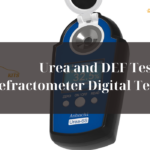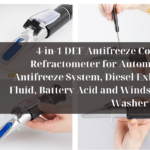How to Fix the P0420 Code in Volkswagen Jetta?
Understanding the P0420 Code
The P0420 code is a diagnostic trouble code (DTC) for “Catalyst System Efficiency Below Threshold (Bank 1).” This code is often triggered in vehicles like the Volkswagen Jetta when the catalytic converter is not functioning efficiently. The catalytic converter plays a crucial role in reducing harmful emissions, and when it fails, it can lead to increased pollution and potential damage to the vehicle.
Causes of the P0420 Code
There are several reasons why the P0420 code might appear in your Volkswagen Jetta:
- Faulty Catalytic Converter: The most common cause is a failing catalytic converter that is not effectively converting exhaust gases.
- Oxygen Sensor Malfunction: The upstream or downstream oxygen sensors might be faulty, providing incorrect readings to the engine control module (ECM).
- Exhaust Leaks: Leaks in the exhaust system can affect the readings of the oxygen sensors, triggering the P0420 code.
- Engine Misfire: Misfires can lead to unburned fuel entering the exhaust system, damaging the catalytic converter over time.
- Fuel System Issues: Problems with the fuel system, such as a rich or lean air-fuel mixture, can also contribute to this code.

Diagnosing the P0420 Code
Proper diagnosis is essential to fix the P0420 code effectively. Here are the steps you should follow:
Step 1: Scan the Vehicle
Use an OBD-II scanner to retrieve the trouble codes from the ECM. Confirm that the P0420 code is present and check for any additional codes that might provide further insight into the issue.
Step 2: Check for Other Codes
- Scan the vehicle’s computer for any additional codes. Sometimes, other codes can provide more context or indicate a related issue
Step 3: Inspect the Catalytic Converter
Visually inspect the catalytic converter for any signs of damage or clogging. A rattling noise might indicate a broken substrate inside the converter.
- Temperature Test: Use an infrared thermometer to measure the temperature at the inlet and outlet of the catalytic converter. The outlet should be significantly hotter if the catalytic converter is functioning correctly.
- Backpressure Test: A backpressure test can determine if the catalytic converter is clogged.
Step 4: Check the Oxygen Sensors
Test the oxygen sensors using a multimeter to ensure they are functioning correctly. Replace any sensors that are providing inaccurate readings.
- Pre-Catalytic Converter (Upstream) O2 Sensor: Monitor the voltage readings using an OBD-II scanner. The readings should fluctuate between 0.1V and 0.9V.
- Post-Catalytic Converter (Downstream) O2 Sensor: Ideally, this sensor should show a more stable voltage, indicating the catalytic converter is working. If the readings from this sensor are fluctuating similar to the upstream sensor, it could indicate a problem with the catalytic converter.
Step 5: Examine the Exhaust System
Inspect the entire exhaust system for leaks or damage. Repair any leaks to ensure accurate sensor readings and optimal converter performance.
- Visual Inspection: Check for exhaust leaks, especially around the catalytic converter, exhaust manifold, and O2 sensors. An exhaust leak can cause the P0420 code by allowing extra oxygen to enter the exhaust stream.
- Check for Damaged Components: Look for any physical damage to the catalytic converter or exhaust system.
Step 6: Evaluate the Engine Performance
Check for any signs of engine misfire or performance issues. Address any underlying problems that might contribute to the P0420 code.
- Check for Misfires: Misfires can lead to unburned fuel entering the exhaust, which can damage the catalytic converter over time.
- Fuel System Inspection: Ensure the fuel system is working correctly, including the fuel injectors, fuel pressure, and air-fuel ratio.
Step 7: Consider the Catalytic Converter’s Age
- Catalytic converters can degrade over time, especially if the vehicle has high mileage. If the converter is original and the car has over 100,000 miles, it might be time to replace it.
Fixing P0420 Code in Volkswagen Jetta
Once you have diagnosed the root cause of the P0420 code, you can proceed with the appropriate fix:
Replacing the Catalytic Converter
If the catalytic converter is faulty, it will need to be replaced. Ensure you choose a high-quality replacement that meets the specifications for your Volkswagen Jetta.
Replacing Oxygen Sensors
Faulty oxygen sensors should be replaced to ensure accurate readings and efficient converter operation. Consider replacing both upstream and downstream sensors if necessary.
Repairing Exhaust Leaks
Seal any leaks in the exhaust system to prevent incorrect sensor readings and ensure the catalytic converter functions properly.
Addressing Engine Misfires
Resolve any engine misfire issues by checking the ignition system, fuel injectors, and spark plugs. Proper engine performance is crucial for maintaining catalytic converter efficiency.
Optimizing Fuel System
Ensure the fuel system is operating correctly by checking the air-fuel mixture and making necessary adjustments. This will help prevent future occurrences of the P0420 code.
ECU Update
In some cases, a software update from Volkswagen might be necessary if the issue is related to the vehicle’s programming.
Preventing Future P0420 Codes
To avoid the recurrence of the P0420 code in your Volkswagen Jetta, consider the following preventive measures:
- Regular Maintenance: Follow the recommended maintenance schedule for your vehicle, including regular inspections of the exhaust system and catalytic converter.
- Use Quality Fuel: Use high-quality fuel to prevent deposits that can damage the catalytic converter.
- Monitor Engine Performance: Pay attention to any changes in engine performance and address issues promptly to prevent damage to the catalytic converter.
- Check for Recalls: Stay informed about any recalls or technical service bulletins related to the catalytic converter or exhaust system for your vehicle model.
Conclusion
Fixing the P0420 code in a Volkswagen Jetta requires a thorough understanding of the potential causes and a systematic approach to diagnosis and repair. By addressing the underlying issues and taking preventive measures, you can ensure your vehicle runs efficiently and meets emission standards.
FAQ
What does the P0420 code mean for my Volkswagen Jetta?
The P0420 code indicates that the catalytic converter is not functioning efficiently, leading to increased emissions. It is essential to diagnose and fix the issue to prevent further damage to your vehicle.
Can I drive my Volkswagen Jetta with a P0420 code?
While you may be able to drive with a P0420 code, it is not recommended. The code indicates a problem with the catalytic converter, which can lead to increased emissions and potential damage to the vehicle if not addressed promptly.
How much does it cost to fix a P0420 code?
The cost of fixing a P0420 code can vary depending on the root cause. Replacing a catalytic converter can be expensive, while replacing oxygen sensors or repairing exhaust leaks may be more affordable.
How can I prevent the P0420 code from reoccurring?
Regular maintenance, using quality fuel, monitoring engine performance, and addressing issues promptly can help prevent the P0420 code from reoccurring in your Volkswagen Jetta.
Is the P0420 code covered under warranty?
Catalytic converter issues may be covered under the emissions warranty, depending on the age and mileage of your vehicle. Check with your dealer or manufacturer for specific warranty coverage details.





